Make Up Your Mind by Julie Genser
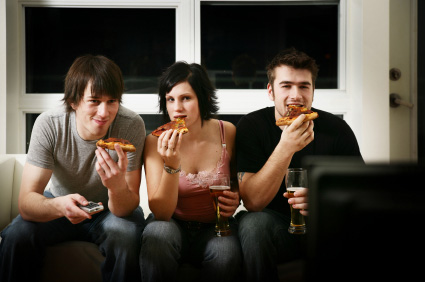
With great power comes great responsibility. – Spiderman
In 2001, two friends poured lighter fluid on 13-year-old Jason Lind’s legs and feet and set him on fire in Torrington, Connecticut. In 2003, a 26-year-old Australian placed lit firecrackers between his buttocks. He is now incontinent and unable to have sex. In 2006, 19-year-old Joe White of Topeka, Kansas jumped from a car going 35 mph and ended up with an egg-sized clot on his brain and long-term brain damage. What all three, and many other teens and young adults around the world, have in common is that they were all imitating stunts they saw on MTV’s show Jackass.1
In fact, according to a 2003 national media survey, more than half the Canadian students surveyed in Grades 7 to 10 said they have witnessed peers imitate a violent act from a movie or television show, including copying a dangerous stunt.2
The American Journal of Public Health published a related study in March 2003. Researchers from Emory University in Atlanta and the University of Alabama at Birmingham studied the behavior of 522 black females ages 14-18 and found that those who watched 14 hours or more of rap videos a week were far more likely than their peers to engage in violent behavior, get arrested, have multiple sex partners, and acquire sexually transmittable diseases.3
We don’t really need scientific studies to know how susceptible human minds are to suggestion; just look at how much companies are willing to pay to parade their products for a few minutes during TV commercial breaks. We’d be foolish to believe that it is only the commercials that are peddling wares.
Knowing the power they wield with the younger generation, MTV now shoulders a great responsibility for our youth, and for our society-at-large, because it is our youth that will become the decision-makers of tomorrow and stewards of all our futures. One has to wonder whether MTV’s programming choices reflect an understanding of the gravity of this responsibility.
Pornography for children
Since their premiere, MTV has had untold impact on popular culture. What began in August 1981 as a cable television channel featuring music videos for the youth of America, today MTV offers an interesting mix of prank/comedy, reality, and other non-music shows in addition to music videos, shown to an expanded audience via American sister channels and affiliated international channels around the world. Over the years, MTV has been heavily criticized for shifting its focus from music videos to reality shows like The Osbournes, Newlyweds, A Shot at Love with Tila Tequila, and other shows like Parental Control, and Pimp My Ride. Recently, at the 2007 Video Music Awards, Justin Timberlake urged MTV to “play more damn videos.”
Many have complained that MTV’s shows encourage bad behavior in the youth of America, featuring celebrities that make poor role models, and promoting the “thug” lifestyle. Some have even claimed that some of the programming on MTV is akin to pornography for children.4 Danny Roberts, a former star of MTV’s “The Real World,” said that the show has become “nothing but soft porn” and that MTV encourages teen-agers to be materialistic.5
In 2005, Parents Television Council (PTC), a conservative media watchdog group, campaigned against MTV asking its top advertisers (Procter & Gamble Co., Sony Corp., Time Warner, PepsiCo, Viacom, and others) to explain why they were buying airtime on the “smut-filled MTV cable network.”6 Said L. Brent Bozell, president of the PTC, “These companies are directly responsible for the raunchy programming poisoning the minds of impressionable children…These companies must be held accountable for underwriting this material.” The council’s report MTV Smut Peddlers: Targeting children with sex, drugs and alcohol claims that MTV is watched by “73% of boys and 78% of girls ages 12 to 19 and it is profoundly influential in the lives of its young fans by glamorizing drug and alcohol use, sexual promiscuity, and violent behavior.”7
Discovering social responsibility
MTV responded to its initial criticism by incorporating more socially responsible behaviors into its programming. Volunteer work and environmental activism were highlighted “in an effort to mobilize a generation of youth leaders to address critical issues in communities across the country.”8 One example of this is Alternative Spring Break 2006, its collaboration with United Way of America to promote Storm Corps, an organization raising funds for Hurricane Katrina victims.
In 2004, its traveling pro-democracy campaign Choose or Lose visited university campuses, inner city neighborhoods, music concerts, and national conventions with the intent of motivating 20 million young people to vote.9 Other awareness campaigns over the years on issues such as crime, drugs, violence, and voting include Fight For Your Rights (“Speak Out/Stand Up Against Violence”), True Life (documenting real people and the unusual subcultures they live in), and ThinkMTV. The ThinkMTV website discusses current political issues and encourages action with their mantra: “Reflect. Decide. Do.”
With its long history of promoting environmental activism, MTV has not failed to jump on the current “climate change” bandwagon with ThinkMTV’s Break the Addiction campaign, which encourages America to find ways to use renewable energy sources and break its dependence on oil. Some of the suggested tips include unplugging cell phone chargers and other electronic equipment when not in use, purchasing a hybrid vehicle if one can afford it, recycling, and planting trees.
MTV is also filming the 20th season of The Real World in a solar, environmentally sustainable Hollywood home to introduce “today’s youth to the ways in which they can incorporate environmentally friendly household items and make eco-friendly lifestyle choices” in their everyday lives. The house has bamboo flooring, recycled glass counters, Energy Star appliances, a solar-heated swimming pool and other sustainable features. MTV didn’t stop there; the production company itself has taken measures to reduce its environmental footprint to carbon neutral and promises to offset any remaining carbon emissions after production is over.10 What remains to be seen is who the cast members are and how they will interact. No word yet on whether they are seasoned eco-activists, newbies to the global warming scene, or if they will be focused on sustainability at all, aside from their temporary occupancy of this “green” Hollywood home.
A future version of True Life will feature an eco-activist involved in the fight against global warming—whether fighting to protect a natural resource, taking legal action against a local polluter, or challenging their local government to adopt greener practices.11 And according to MTV casting calls, there is a show in-the-works that follows opinionated Washington D.C. political interns wanting to “make a difference,”12 as well as a planned feature showcasing student activists and “the ways they are connecting with their peers and expanding their digital reach to create a real world change.”13
The current disconnect
All of these specials focused on politics, activism, and the environment are wonderful. But the question begs to be asked: why do most of the reality shows offered by MTV remain focused on a skewed value system that is counter to the philosophies behind its more political programming? What is this programming schizophrenia about? Is it trying to be “all things to all people”? Is it merely reflecting teen culture, or is it in fact manufacturing it? It may all boil down to one cliché: sensationalism sells.
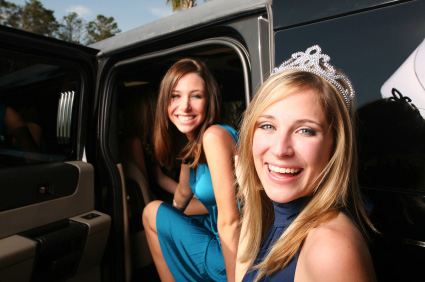
For example, My Super Sweet Sixteen follows the preparation and festivities for the sixteenth birthday parties of the ultra-rich girls of our country, for whom (according to the show) it’s customary to receive a ~$35K+ car as a present, have rap stars performing, and other over-the-top practices that will undoubtedly leave the youth of America’s middle class feeling deprived and yearning for more. The sixteen-year-olds featured are usually extremely spoiled and obnoxious and MTV goes out of its way to emphasize the exclusivity factor, focusing on the fact that only certain kids get invitations, and repetitively airing statements like “My party is going to be better than everyone else’s.” It’s still an energy-intensive, dog-eat-dog world on MTV.
In reality—yes, there is a paradox here, it being a “reality show”—the presents aren’t as extravagant, the girls aren’t as bratty, and the search for performers doesn’t quite amount to the anxiety-provoking auditions seen on the show. Atlanta-based Bold American Catering’s director of sales Stacy Zeigler divulges that the BMW X5 gifted to a client of hers whose party aired on one episode of My Super Sweet Sixteen “was just for the show. She really got a Honda or a Toyota.” Solomon Rosenzweig, president of San Francisco’s DaVinci Fusion, says that MTV’s involvement in their party turned the simple task of booking entertainment “into full-blown casting sessions…to make for compelling television.”14
MTV’s Real World series has evolved into (or more accurately, never ceased being) a bunch of unruly kids who can’t handle their liquor living in lavish settings, getting falling down drunk every night, smashing things, evading work-related responsibilities, and “hooking up.” After a few series, this wearily familiar plot gets old fast. The Housewives of Orange County flaunts plastic surgery, large homes, and other manifestations of a material lifestyle. The show Cribs focuses on the ostentatious homes of rock stars and celebrities—continuing the-bigger-the-better theme where car collections and pools with fountains seem to be the norm.
Is there no place for a young person in this country to live somewhere between the deep black and pale white of the bling/rapper/player/bootie and the rich/thin/blonde/buxom stereotypes offered? Must we all aspire to gas guzzling, energy-draining lifestyles with no thought to our individual—and for that matter, collective—impact on this earth? In an age where America can use some positive PR, portraying our youth to those around the world as filthy rich, spoiled, and immoral impacts more than MTV’s bottom line: one has to wonder how much this type of programming influences the global disgruntled masses who don’t need more reasons to hate us.
MTV can do better than this. It has an opportunity to help form the thinking of young adults in our country and around the world; to give them more choices in life, to take responsibility for the youth culture it is indeed “manufacturing,” and the future of this country that it plays a big part in creating.
Beyond global warming
And while we can applaud MTV for riding the now popular “green” bandwagon, it is a bandwagon and there is the tendency to want to fall back onto the easy definitions, the catchall solutions, and the current fad of focusing merely on global warming when there is so much more at stake.
Take public health, for instance. We are living in a toxic soup and each one of us is a rogue chef throwing more and more frightening ingredients into the mix every day (think a pinch of toluene from your nail polish, a tablespoon of aluminum from your antiperspirant, a few cups of volatile organic compounds from your photocopier machine, air fresheners, and mothballs, 3 teaspoons of pesticides from your food, and a garnish of formaldehyde from your clothing and your home’s particle board shelving). Now multiply this by the billions, day after day after day. It’s just a matter of time before each and every one of us feels the effects of that in some way; whether through asthma, irritable bowel syndrome, ADHD, cancer, food and/or chemical sensitivities, or any other of the exponentially increasing health issues of our day.
Why not do a reality show focused on kids who are learning the painful lessons of our toxic world at an early age and doing something constructive about it? Programming that emphasizes individual and collective responsibility—for the earth’s resources, and for one’s own behavior, sexual and otherwise—rather than dependence on one’s parent’s bank account or on external acts (getting a tattoo, having casual sex, getting drunk, performing dangerous stunts) to prove one’s self worth?
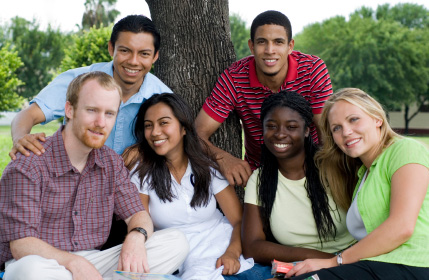
Instead of The Real World, how about Our Green World:
Imagine six strangers from all over the world thrown together to live in an intentional community (eco-village). One is a tattoo- and piercings-covered lacto-ovo vegetarian virgin who regrets getting tattooed and wonders what effect the toxic inks he injected into his skin will have long-term; another is a “universal reactor” with burgeoning chemical and electrical sensitivities getting a crash course in the dangers of common synthetic chemicals and the invisible “electro-smog” that surrounds us all; one is a passionate eco-activist plotting to take down cell towers and blow up dams in the wake of reports of increased brain tumors in those living near cell towers, and a dwindling wild salmon population; another has gotten off Ritalin by using a raw foods healing diet and has never felt more alive and focused…you get the picture.
The story weaves through the relationships that form, the clashing personalities and needs, the unique insights and connections made—all within the context of a working eco-village. With characters that are not caricatures or tokens, but that are complex, contradictory, engaging, vulnerable beings. Eco-village life is very interesting. There is no lack of drama and there is enough public interest; it could certainly sell a show.
What about a documentary following a displaced Hurricane Katrina family on their health journey through the toxic formaldehyde-laden FEMA trailers?
Or the video diary of a celebrity that has chosen to capitalize on the power of their fame and fortune not through an excessive lifestyle, but through the global voice it affords them; someone whose personal life reflects the values they are preaching.
It’s one thing for Cameron Diaz to host a show on eco-tourism (Trippin), but quite another to do so without guzzling gallons of jet fuel by taking multiple plane flights, chartering private helicopter flights and a boat, and using SUVs in the process.15 The show does claim to have purchased carbon credits to ensure that it would not contribute to global warming. But as acclaimed architect/industrial designer/sustainability expert Bill McDonough has said, “Being less bad” is not the same as being good. The after-the-fact purchase of carbon credits, although better than nothing, has the dangerous potential to be the next easy fix for corporate global polluters, and does nothing to address pollution and the resulting epidemic health issues caused by our excessive and inappropriate use of fossil fuels and other natural resources.
A sea change is needed
When asked about the paradox of introducing environmental themes into popular prime-time shows that are anything but mindful of our planet’s resources, Ian Rowe, MTV’s Vice President of Public Affairs said “It’s in the context of a channel that they see all the kinds of programming that they like, so in some ways it’s more powerful and has more impact because of the context in which they’re seeing it.”16 This is exactly the point.
Hopefully by acknowledging the power they wield, MTV execs can turn the tides from reality shows that celebrate off-color behavior and rampant consumerism to programming that truly reflects the new values of our youth and helps prepare them to handle the planetary environmental challenges of the coming century. Similar to what is happening around the country with global warming, MTV’s whole mentality needs a sea change rather than just a few new show ideas.
In the days of mass school shootings by deranged students and a drawn out war for oil taking place across the ocean that bloodies all our hands and steals the limbs and lives of America’s young adults, ultimately, those in charge of program development at MTV need to decide: what kind of world and value system is it that you want the world’s children, and the rest of us, to live in? One that has 2.5 million children on Ritalin17 and 1.6 million children and teenagers on antidepressants in America alone,18 or one in which our youth know how to grow their own chemical-free food, live an energy-efficient lifestyle, and take care of their own health without the use of powerful pharmaceuticals that have unknown side effects on their bodies, as well as the plants and wildlife they eventually reach as they enter our wastewater and streams? Incorporating that value system into all of its prime-time shows—and not just the targeted specials—is a great first step toward creating that world.
sources:
1 Mark Andersen, Teen recovers from ‘Jackass’ stunt, Lincoln Journal Star, November 2006
2 Canadian Teachers’ Federation, Kids’ Take on Media, 2003
3 Wingood et al., A Prospective Study of Exposure to Rap Music Videos and African American Female Adolescents’ Health, American Journal of Public Health 93 (3): 437
4 Rebecca Hagelin, Taking Back Our Homes, Orthodoxy Today, August 2007
5 Flannery Amdahl, GSA features Danny from “The Real World”, The Pitt News, November 2002
6 Press Release, PTC Releases Top Ten Corporate Sponsors of MTV Sleaze and Challenges Companies to Defend Their Sponsorship of Teen-Targeted TV Smut, Parents Television Council, March 2005
7 Casey Williams, MTV Smut Peddlers: Targeting Kids with Sex, Drugs, and Alcohol, Parents Television Council, 2005
8 Storm Corps Alternative Spring Break 2006, think MTV, 2006
9 Jose Antonio Vargas, Vote or Die? Well, They Did Vote, Washington Post, November 2004
10 Press Release, MTV Celebrates Season 20 of “The Real World” by Rolling Out the Green Carpet in Hollywood, California, MTV Music Television, August 2007
11 MTV Casting, MTV Seeks Eco-Activists, Campus Climate Challenge, May 2007
12 MTV Casting, Are You Interested in Politics? Want to be Active in your Government in Washington, DC?!, MTV Music Television, 2006
13 MTV Casting, Casting Call for Activist Series, Want to Represent Your Cause Name on mtvU?, MTV Music Television, 2007
14 Christine Landry, The Real World Of Sweet 16s, Special Events, December 2006
15 Global Warming and Carbon Offsets, MTV Music Television
16 Sam Abuelsamid, AutoblogGreen Q&A: MTV Vice-President Ian Rowe, AutoblogGreen, April 2007
17 2.5 Million Children Taking Drugs for ADHD, Daily News Central, September 2005
18 Gardiner Harris, Proof Is Scant on Psychiatric Drug Mix for Young, NY Times, November 2006
photo credits: Watching MTV © Lise Gagne / iStockphoto | Sweet 16 © ShaneKato / iStockphoto | Our Green World © Aldo Murillo / iStockphoto








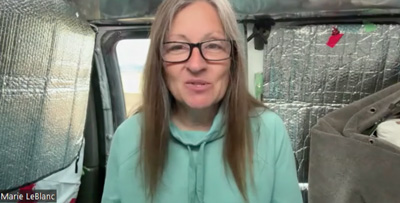
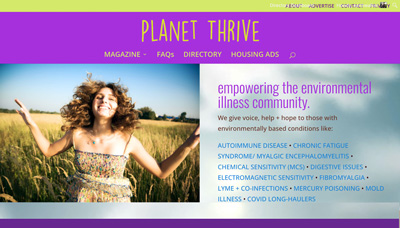
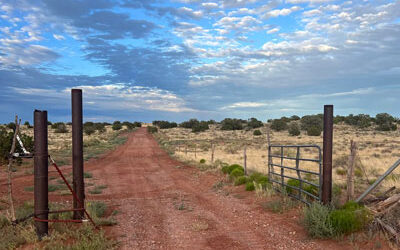
0 Comments